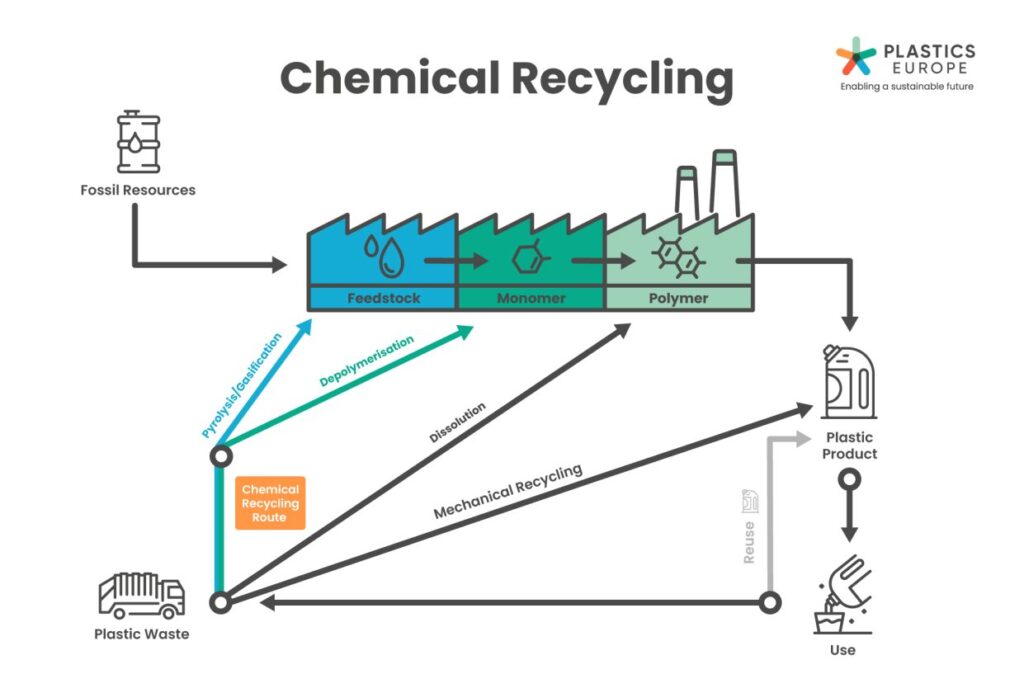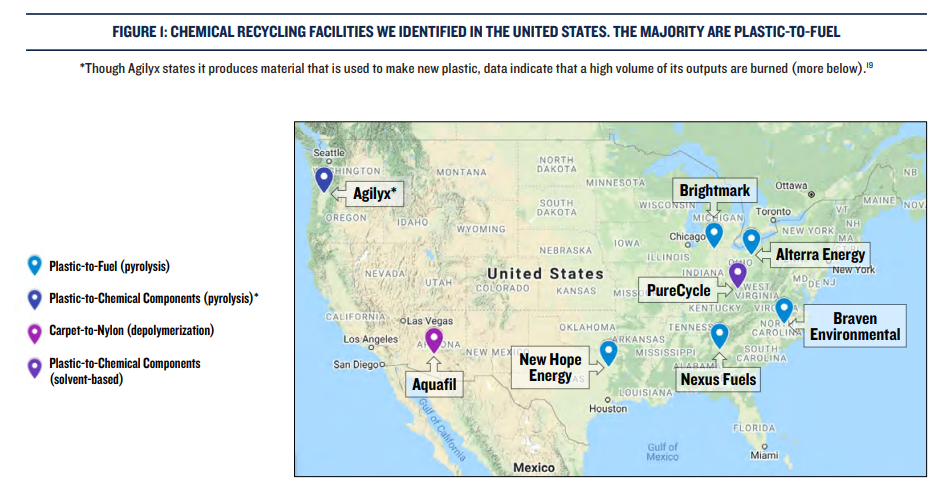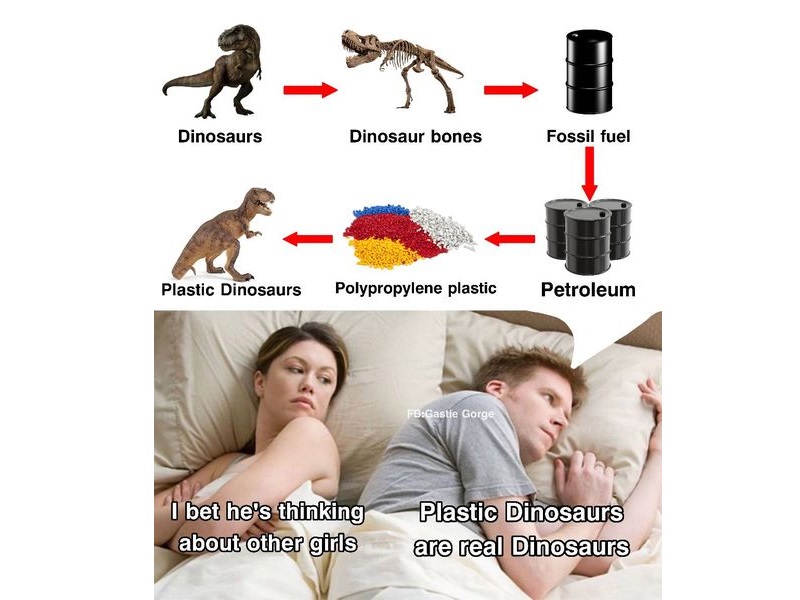Part 2
Disclaimer: I try to keep a gap between what I talk about on my blog and what I do for my job. For some topics, that’s a harder ask, especially when I’m talking about petrochemicals, which are a core piece of the oil and gas industry. Nevertheless, the content of this blog is my own and not representative of any organizations with which I am associated.
With that said, we left off last week talking about perceptions of recycling and how the process is still presented as a solution to our plastic waste problem, even though it has done more to exacerbate than solve the problem. [1] Just during this last week, I had a neighbor tell me how much he cares about the environment and that he recycles everything he can. I smiled and nodded, not having the energy to tell him that what he thought was happening to his plastic was most likely not what was actually happening to his plastic. And the truth is… I don’t know for sure, either, but I can look at trends in information that is available, which is what we’re going to do here.
Chemical Recycling
Mechanical recycling, which we covered last week, involves, as the name might suggest, shredding, grinding, and melting of very specific types of recyclable plastics. Less than 10% of plastics actually make it into a closed-loop recycling process, and part of that is because so much of our plastic is not actually recyclable in this manner. Also – and this piece is important to remember, too – these plastics can only really stand up to the process of melting and reforming a small number of times, which is why virgin plastics must be introduced to the mix for added stability. What that means is that even with mechanical recycling, the chances you’ll ever find a 100% closed-loop recycled plastic bottle are vanishingly small, if not actually zero.

Image credit: [2]
Different plastics have different qualities (e.g. rigid vs. flexible), which are determined by their molecular structure. The reason you can’t commingle all types of plastic in mechanical recycling is that they will lose their desired qualities when mixed together. That downside to mechanical recycling is being addressed in the promotional language for a newer technology, called “chemical recycling” or “advanced recycling,” with claims that it can help us realize a closed-loop plastic recycling process. This process involves using extreme heat to break down plastics into their building blocks and essentially start the production process over again with something akin to virgin plastic. [3]
I was quite surprised by how little detail I could find about this process on the American Chemistry Council’s website, especially since they actively lobby for policies supportive of chemical recycling. [4] The most complete description I saw on their website was in a video starring the seven-year-old son of an employee at the Brightmark chemical recycling facility in Ashley, Indiana. But even as he explained what chemical recycling is, he was very clear that his dad’s facility was turning plastic into oil, not plastic. [5]
And that point is concerning: if we as a society are actively trying to transition away from burning oil and gas, creating more of it from waste plastic with the intention of burning it is antithetical to that goal. And if the goal is really just creating more oil and gas without having to drill for it, then calling it “recycling” is a lie, one seemingly designed to make us feel good about our actions, because recycling is equated with responsible, eco-friendly behaviors. In the words of Kevin Budris (representative of zero waste nonprofit Just Zero), “any time I hear the phrase ‘circular economy’ I assume that it’s greenwashing.” [6]

Image credit: [7]
Plastics Industrial Complex
So why are most chemical recycling facilities in the United States not actually recycling plastic? [8] Several factors indicate that it might not actually be that profitable. Multiple chemical recycling projects have been backed by large oil and gas firms over the years, resulting in small pilot projects, but many of those have since been delayed or retired. Reuters notes a number of chemical recycling companies that have seen dropping stock prices subsequent to promising IPOs. [9] Feel-good marketing is one thing, but in reality, getting plastic to the oil stage is far easier and cheaper than getting it back to the plastic stage in a closed loop, if that is even possible.
The first step (plastic to oil) is usually done with pyrolysis, a process that involves superheating the plastic in the absence of oxygen and results in a mixture of hydrocarbons (much like crude oil or fossil gas, which need to be refined to create other products). According to a report from Zero Waste Europe, effective plastic recycling using pyrolysis requires multiple energy-intensive rounds of purification or large amounts of virgin petroleum naphtha to dilute it, [10] indicating that closed-loop chemical recycling of plastic may not be possible while still realizing a net positive outcome for the environment… or the people living near these facilities.
Another process in use is depolymerization, which is distinct from pyrolysis in that it breaks down certain plastic polymers into their component monomers, making use of thermal and/or chemical reactions in the process. Ideally, getting plastic back down to this monomer building block provides more opportunities for what it can go on to produce, but it tends to be used less than pyrolysis, in part because it can only be used on certain types of plastic (e.g. polypropylene and polyethylene terephthalate). Nonetheless, it can also – like pyrolysis – be energy-intensive and require the addition of virgin plastic to the final product. [11]

Image credit: [12]
Unsurprisingly, any internet search for more information on the subject will result in conflicting claims about environmental impact and health risk of chemical recycling, but there are places in the country, such as Louisiana’s “Cancer Alley,” that can attest to the risks of living in the midst of petrochemical facilities. [13] Here in Pittsburgh, we’re looking down the barrel of our own petrochemical buildout, with the first of many planned sites up and running, despite multiple Department of Environmental Protection violations at the Shell Ethylene Cracker in the last two years. [14] Concerns over Shell’s sub-par operations have gained much-needed attention on this subject from environmental and community groups, but there are still multiple chemical recycling facilities proposed in the Ohio River Valley. [15]
~
And that’s where we’ll pick up next week – hopefully with a little more information about where my plastic goes when it leaves my house. In the meantime, I’d love to hear about anything you’re doing for Plastic Free July, whether it’s a pledge to reduce your consumption or get more involved. [16] Please share your story below.
Thanks for reading!
[1] https://radicalmoderate.online/plastic-free-july-2024-what-do-we-mean-when-we-say-recycling/
[2] https://plasticseurope.org/sustainability/circularity/recycling/chemical-recycling/
[3] https://www.americanchemistry.com/better-policy-regulation/plastics/advanced-recycling
[4] https://www.americanchemistry.com/better-policy-regulation/plastics/advanced-recycling
[5] https://plasticmakers.org/can-a-kid-explain-advanced-plastics-recycling-you-bet/
[6] https://grist.org/accountability/circular-economy-plastics-recycling-reuse-waste-conference-seattle/
[7] https://www.nrdc.org/sites/default/files/chemical-recycling-greenwashing-incineration-ib.pdf
[8] https://www.nrdc.org/sites/default/files/chemical-recycling-greenwashing-incineration-ib.pdf
[9] https://www.reuters.com/investigates/special-report/environment-plastic-oil-recycling/
[10] https://resource.co/article/pyrolysis-not-suitable-effective-plastic-recycling
[11] https://www.nrdc.org/sites/default/files/chemical-recycling-greenwashing-incineration-ib.pdf
[12] https://www.reddit.com/r/sciencememes/comments/1e1le5l/technically_correct/
[13] https://news.climate.columbia.edu/2024/03/18/the-endless-shame-of-louisianas-cancer-alley/
[15] https://www.ehn.org/chemical-recycling-ohio-river-valley-2667659730.html
[16] https://www.plasticfreejuly.org/
0 Comments